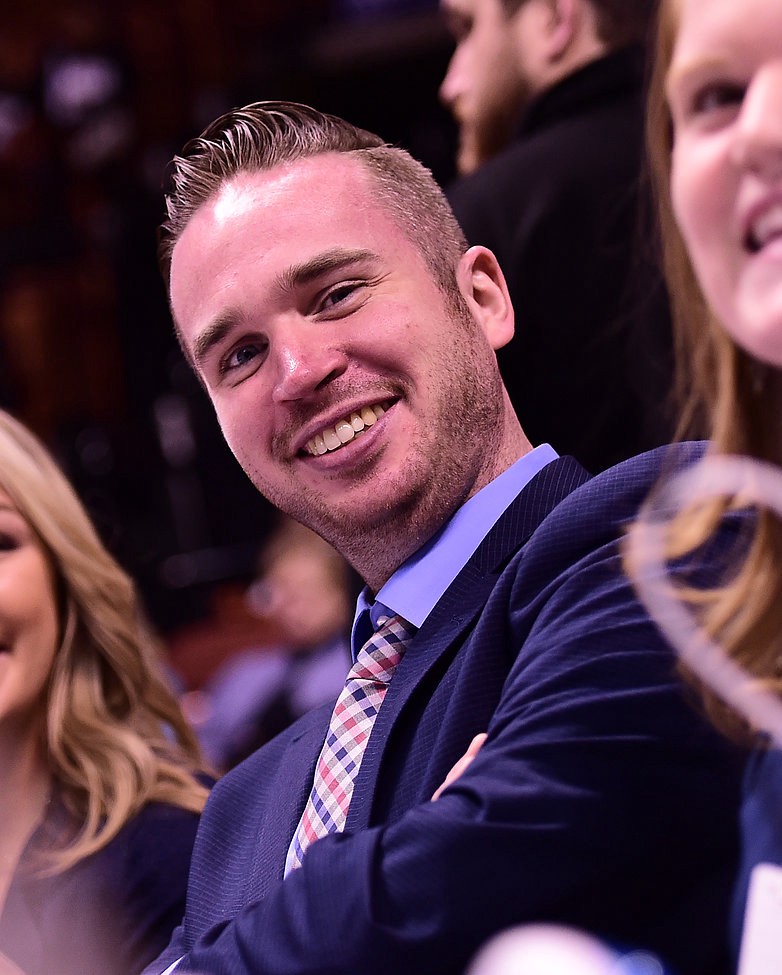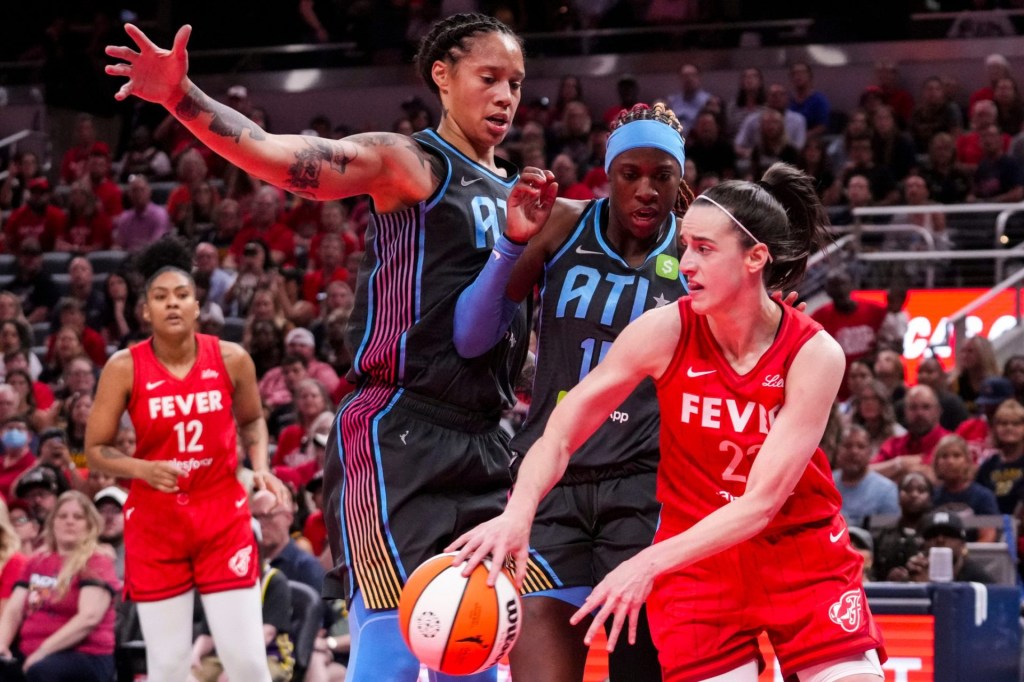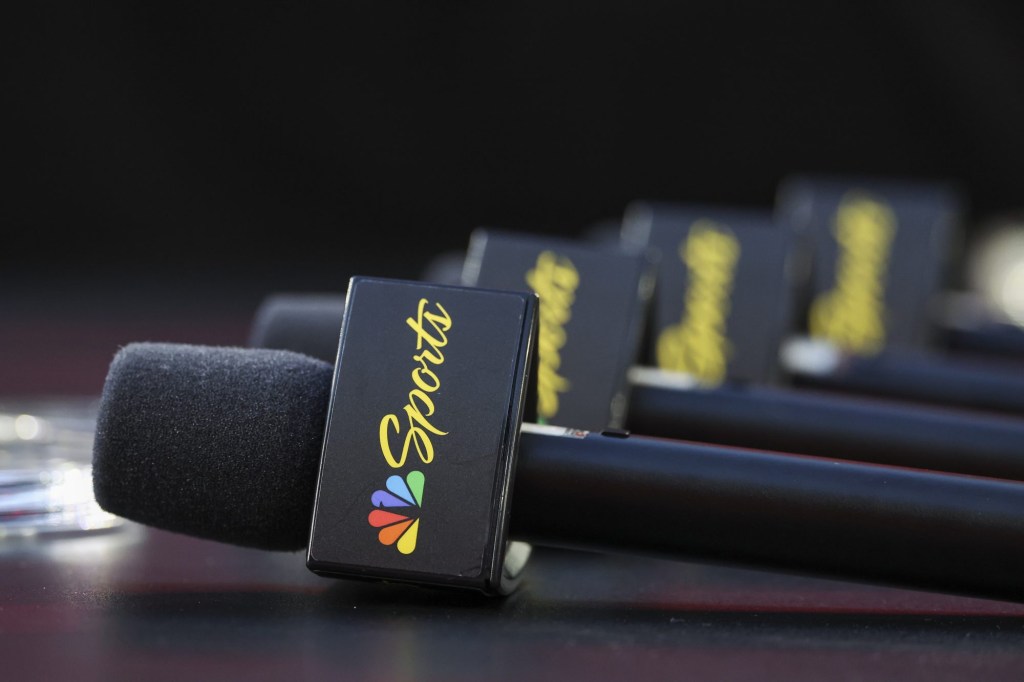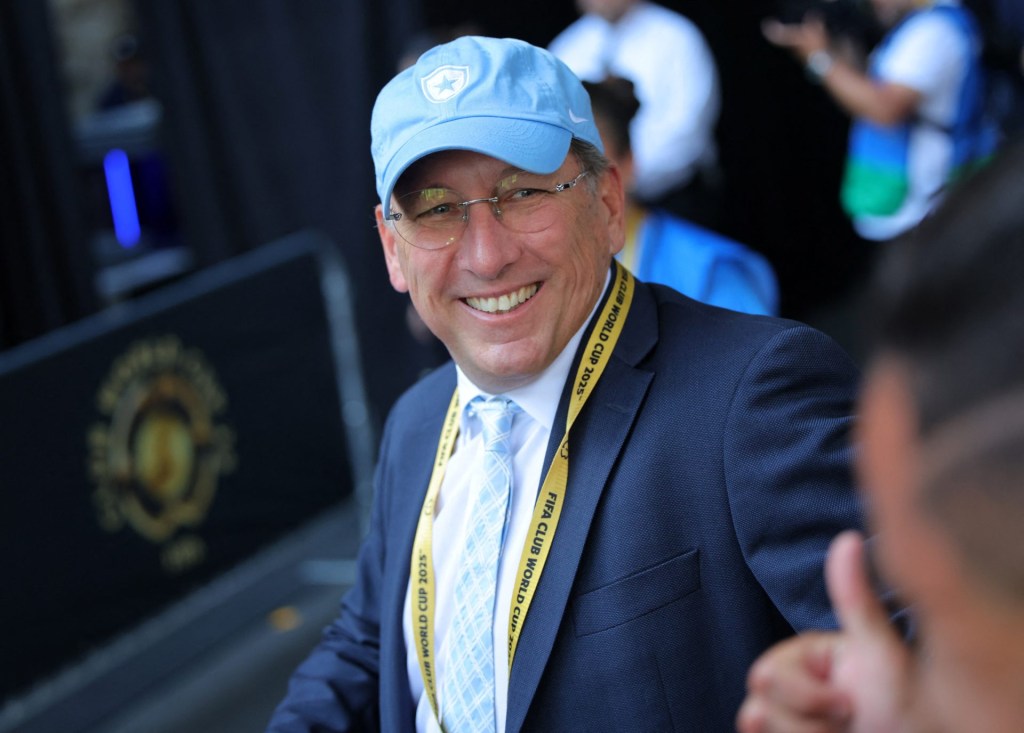By: Adam White, @FOSAdam

Front Office Sports is proud to have sat down with Mark Hodgkin, the Assistant Commissioner of Digital Media for the American Athletic Conference. With previous stops at Bryant University and Boston College, Mark has made a rapid ascension to where he is today even though, in his opinion, he “got a late start in sports.” Viewed as one of the most respected digital media professionals in collegiate athletics today, Mark has helped establish the American’s brand along with spearheading the creation of their digital network. He was gracious enough to offer up his insight into the world of collegiate digital media, why having some type of design skills is of utmost importance and why preparation is key to succeed in all facets of this industry.
You graduated from Bryant University in 2008. Now, seven years later, you find yourself as the Assistant Commissioner of Digital Media for the American Athletic Conference. What has your journey been like and did you ever expect to be where you are today?
I finished my undergrad work at the University of Texas in 2006 and then I had the opportunity to go over to Bryant and work for the Marketing Director as a graduate assistant. I never really thought about going to graduate school, but they were paying for my tuition so I decided to pursue it. I really threw myself into the college marketing environment and also did low level development with their Black and Gold Club working with local companies on sponsorships for about two years while going to school and getting my MBA.
After that, I went to Boston College. I made friends with one of their Associate Athletic Directors, Jamie DiLoreto and in the summer of 2008 he called me and asked if I had ever done website work. I told him that I hadn’t done much, but I’d figure it out. I had to take a leap because it was before I was done with school. I had to finish school and balance my internship with BC. I took a step a way from the industry for a few months, but was lucky to receive a call about the Big East hiring a Director of Internet Services. I was fortunate to get hired for that position. Since then, we have gone through seismic change in the conference. I was lucky to ride it out to the position I am in now.
You were with what is now the American Athletic Conference, but was then the Big East during the reconstitution of the conference. What was that experience like?
There isn’t one word to describe it. At times, we didn’t even know if we had jobs. It was definitely a learning experience. We learned a lot about the business side of sports. We are still establishing our brand to this day.
During the reconstitution, we were building our website without a name or logo for our conference. We ended up giving them the logo three weeks before we launched. It has been a challenge as we have to catch up, but we are working on it every day.
Finish this sentence, “ My normal day is….”
Elusive. We don’t have a ton of normal days. I don’t know what it is like to have a normal day and, if I did have one, I think it would be boring. I’m thankful that we always have a different thing going on everyday. Everyday this year has been different than the same days last year.
Digital Media is the new sexy job in sports; can you touch on why it may not be as sexy as it appears from the outside?
Three years ago these jobs weren’t as sexy because they were more of the Webmaster type. Nowadays, these jobs are more social media or a jack-of-all-trades of different types of technological mediums. It seems sexier on the outside because people think we just play on Twitter all day, which is not the case. There is such an arms race nowadays, so these positions come with tremendous responsibility. Another thing that makes these jobs hard, is the hours and the amount of nights and weekends you work.
Many students now think just because they have phone and a twitter account they can be in digital media. Can you touch on what students and other professionals should do if they are serious about working in this field?
The big difference is design skills. The bar on graphics has risen significantly. Most, if not all, big schools as well as other small schools have graphic designers or are investing in them. Having these skills can really set you apart. You also need to have a social media presence for yourself. You need to show you have the skill set to do a little bit of everything.
What are your top tips when it comes to networking and the interviewing process?
For networking, don’t be afraid to ask and get involved in the conversation whether it is on Twitter or over email. I think asking the right person is the first step, but creating value is the second step.
As far as interviewing, the lack of preparation I have seen is alarming. You can never prepare too much for an interview. People want to see who has done their homework and what they really know about the position they want. I have also seen a lack of any type of thank you emails or cards from people who have been interviewed. It’s alarming. It is a simple step, but not enough people do it. Be the person who follows up, it will pay off.
Proudest moment thus far? Goal from here?
I am really proud of our digital network that we are creating. We have a different vision and direction that we going in than prototypical digital networks and I am really excited about it. As a goal, I really want to get closer with the schools and get out there and see what they are doing and see what they need. I think that’s the next step for us.
Parting wisdom?
Be willing to embrace new things. When an opportunity comes up, whether it is a different geographic location or a strange position, if you really want to do it take a leap of faith and embrace it even though you may not know where it will take you. You have to bet on yourself!
People in the sports industry are generally good people. I haven’t come across many that I haven’t liked.
Sometimes all you have to do is ask. You’d be amazed at what happens when you do.
With a friendly demeanor and the desire to provide assistance, it is easy to see why Mark’s colleagues hold him in such esteem. For Mark this job, while tough at times, “is awesome” and something he wouldn’t change for the world. We would like to thank him for his time and insight and wish him the best of luck in all his future endeavors!
You can follow Mark on Twitter here or connect with him on LinkedIn here!

















